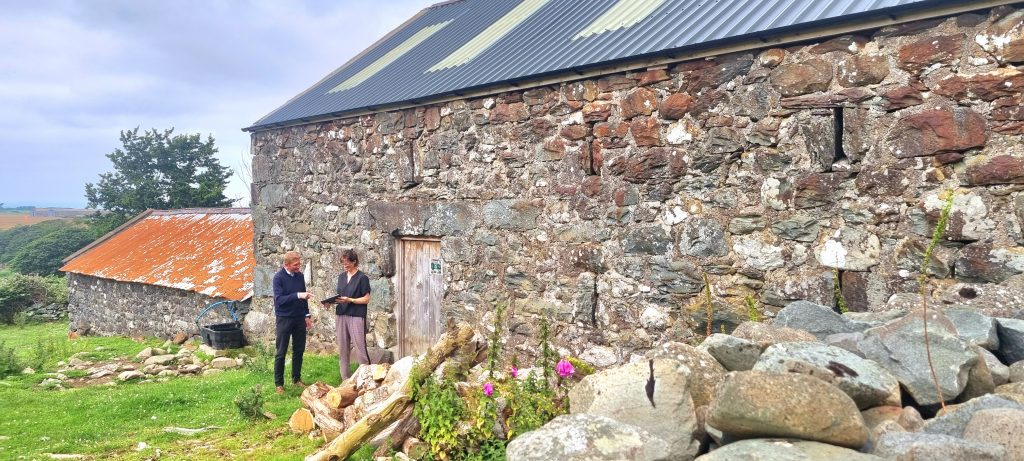Major changes to the planning system have been announced by the government, which will ease restrictions on changes to agricultural building usage in England.
This is the biggest change to the planning system since 1947 and the move is designed to cut red tape.
The pledge has been welcomed by farm leaders and planning experts who believe it will prove to be hugely beneficial to the agricultural sector.
In our latest blog we will be investigating what the reforms entail and what it means for farmers and rural communities. The detail of this blog is focussed upon developments in England but certainly the pressure from organisations such as the CLA will be for changes to be progressed in Wales as well.
The reforms
The farming community has long bemoaned the planning regulations that have restricted opportunities for disused property diversification and this is an issue that the CLA has long campaigned to change.
However, radical new reforms have been announced by Prime Minister, Boris Johnson at a speech in Blackpool earlier this month, which would ease such restrictions on farm building conversion and could pave the way for farmers to turn such property into residential properties.
The proposed changes would also apply to National Parks and Areas of Outstanding Natural Beauty.
The CLA has hailed this as a major victory which forms part of its Rural Powerhouse campaign, and comes after an intense period of lobbying of Ministers and MPs for the campaign group.
The updated English planning guidance has clarified what is meant by the ‘impractical or undesirable’ test for building conversion, a clause that has proved to be a roadblock for many farmers looking to convert farm buildings.
The nebulous nature of ‘impractical or undesirable’ meant that councils were able to use it as a reason to reject applications on location grounds, but with a clearer definition more applications should be approved.
The new guidance states that ‘a location where the local planning authority would not normally grant planning permission for a new dwelling is not a sufficient reason for refusing prior approval’.
This change would make it far easier for those in rural communities, as well as farmers, to gain planning permission.
CLA President Mark Tufnell spoke of what the reforms could mean for farmers and rural areas, and said: “There is tremendous untapped economic potential in the countryside.
“With the right policies, rural businesses could add another £43bn to the national economy.”
Levelling up and regeneration
The reforms are part of the proposed ‘Levelling Up and Regeneration Bill’ which seeks to address investment needs in areas and regions outside of London and the South East of England.
By allowing for disused agricultural buildings to be converted into residential property, it is hoped that there will be a greater supply of housing in rural communities, which could provide a host of economic benefits.
Further to this, if these homes are created then, in theory, more first-time buyers will be able to get onto the property ladder.
In 2014, there was an expansion in development rights to allow the conversions of disused barns into class C3 property, which concerns residential buildings.
Yet, under this legislation still only one in three barn conversion applications have been successful meaning that many farmers have been unable to make use of redundant buildings.
Defra minister George Eustice said that it had been too difficult for too long for farmers and landowners to get planning permission when trying to diversify.
Baileys and Partners
Baileys and Partners is passionate about championing rural communities and believes there is a huge amount of economic potential within them.
We have an exemplary track record of success in managing the most complex planning applications within the most constrained areas of Wales. We believe that the recently announced planning reforms are a step forward for rural communities and that Welsh Ministers will be keeping a careful watch over how the reforms evolve.
Find out more about how Baileys and Partners can help with your planning applications here.
Baileys will also be attending the Anglesey Show on 9th and 10th August, where we’ll be sharing a stand space with Lanyon Bowdler Solicitors https://www.lblaw.co.uk/ and offering refreshments to our clients and guests.
We’ll have a demonstrator crossflow turbine https://crossflowenergy.co.uk/smart-turbines/ plus there’ll be details of our vertical farming https://baileysandpartners.co.uk/tech-tyfu-vertical-farming-in-north-wales/.
There will also be games and competitions and members of our team will be there each day to chat to attendees.







